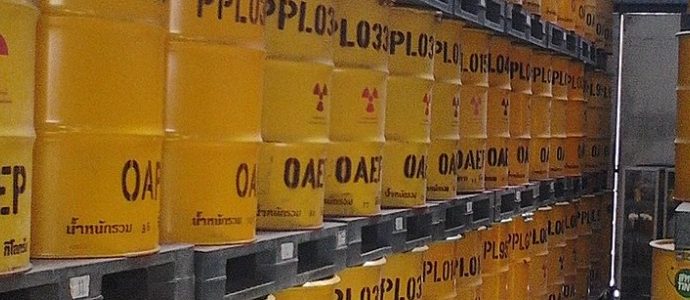High-powered Lasers Could Cut the Half-life of Nuclear Waste From “A Million Years to 30 Minutes”
Nuclear waste: the radioactive material left over from numerous medical, industrial and military applications can persist for millions of years before its atomic structure decays into a more stable element. Although the long-term storage of toxic byproducts can mostly keep them out of harm’s way for hundreds of thousands ofread more
